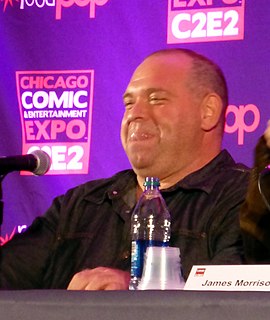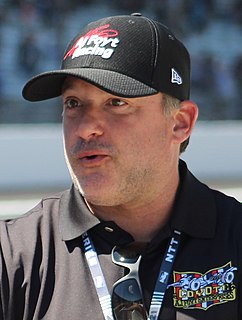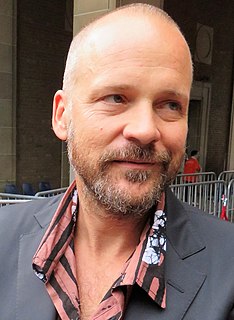A Quote by Carey Mulligan
One of the things I love about the theater is that no one can tell you to stop. Once you're onstage, it's three hours, and whether you're completely off or you're just horrendous, you've got to find a way to leave an impression. There's not that terrible thing that you get when you're making a movie, where you get in your car at the end of the day knowing that something you're not proud of was immortalized on film, and you can't fix it because they won't reshoot it.
Quote Topics
Related Quotes
I never get discouraged about anything. If I got discouraged I wouldn't keep giving out the script then the movie wouldn't be made. The biggest thing about movie industry is to never get discouraged because once you get discouraged you lose interest. You'll stop being successful in something you love doing. If you get discouraged in things and not even want to finish or do them, then why even bother starting?
'Paranormal Activity' had fifty versions because it was $250 to reshoot. We'd screen it, see one thing wrong, shoot for an hour, fix it, and then screen it again. You don't have to be disciplined about it. On a regular movie, you have to screen it and think of every problem, reshoot for three days and solve every problem, and then you're done.
If you're a poet, you do something beautiful. I mean, you're supposed to leave something beautiful after you get off the page and everything. The ones you're talking about don't leave a single, solitary thing beautiful. All that maybe the slightly better ones do is sort of get inside your head and leave something there, but just because they do, just because they know how to leave something, it doesn't have to be a poem for heaven's sake. It may just be some kind of terribly fascinating, syntaxy droppings--excuse the expression. Like Manlius and Esposito and all those poor men.
A movie is a filmed rehearsal in a way. The audience doesn't know that because you're taking out the things that don't work. There's no comparison to the theater because it's live. But making a movie is just as challenging and exciting, I find. A movie is pure process. The theater is the result of process.
Unfortunately, when you're working in film, it's this huge machine, and you've got to get everyone right there, so you get kind of locked into things. I'm not sure where the artistry in film making is. It's usually that moment when you're on set and you're working with the actors. That's the time to play around, the moment of theater. And then you can shape things. But a lot of it is just managing stuff. It's upsetting because you get away from the core.
When I'm in the process of making a movie I'm not thinking about the finished result, and whether people have to see it once or more than once, and what the reaction to it will be. I just make it, and then I live with the consequences, some of which may not be as pleasant as I'd like! I know one thing, however. Many viewers may come out of the theater not satisfied, but they won't be able to forget the movie. I know they'll be talking about it during their next dinner. I want them to be a little restless about my movies, and keep trying to find something in them.
All my cuts are always about three hours, at the start, mainly because any scene in the movie that's 90 seconds, I probably shot a five-minute version of. If you just extrapolate that through the whole movie, I have a very long version of every scene, usually because, if there's one funny joke, I'll shoot five because I don't know if the one I like is going to work. I'll get back-ups because my biggest fear is to be in previews, testing the movie, and a joke doesn't work, but I have no way to fix it because I have no other line.
Four hours of makeup, and then an hour to take it off. It's tiring. I go in, I get picked up at two-thirty in the morning, I get there at three. I wait four hours, go through it, ready to work at seven, work all day long for twelve hours, and get it taken off for an hours, go home and go to sleep, and do the same thing again.
What's neat about TV is you get really rich, an opportunity to tell really rich stories over the course of 20 hours. Film is cool because it's an hour and a half to two hours. You go on an adventure and by the end it's all cleaned up. Maybe in a franchise you have three chapters of a great story but in TV you can really get deep. You have more time to tell stories so I would definitely not rule out doing television in the future because I think it's a great medium for telling stories.
People call me a theater actor, but I'm just an actor. But I tell my friends all the time - especially a lot that do theater and haven't done a lot of TV/film - that you have so much more control over your work onstage. When you go onstage, you can really see the difference between people who can really do it, and people who are just kind of pretending to do it. There is no editor, there's nothing that's going to stop the actor from showing what they can do unless it's not a well-written role.
Consider a man riding a bicycle. Whoever he is, we can say three things about him. We know he got on the bicycle and started to move. We know that at some point he will stop and get off. Most important of all, we know that if at any point between the beginning and the end of his journey he stops moving and does not get off the bicycle he will fall off it. That is a metaphor for the journey through life of any living thing, and I think of any society of living things.



































